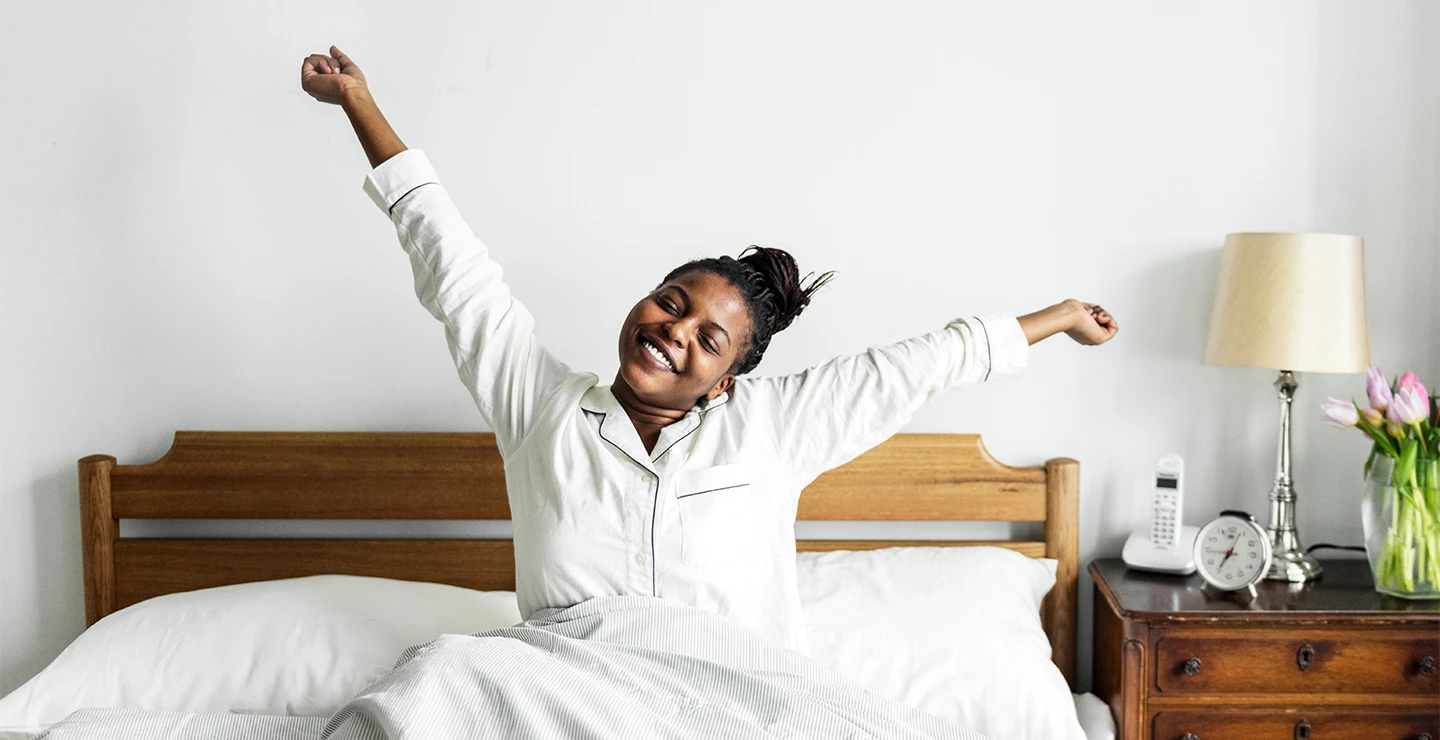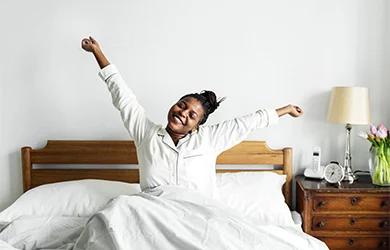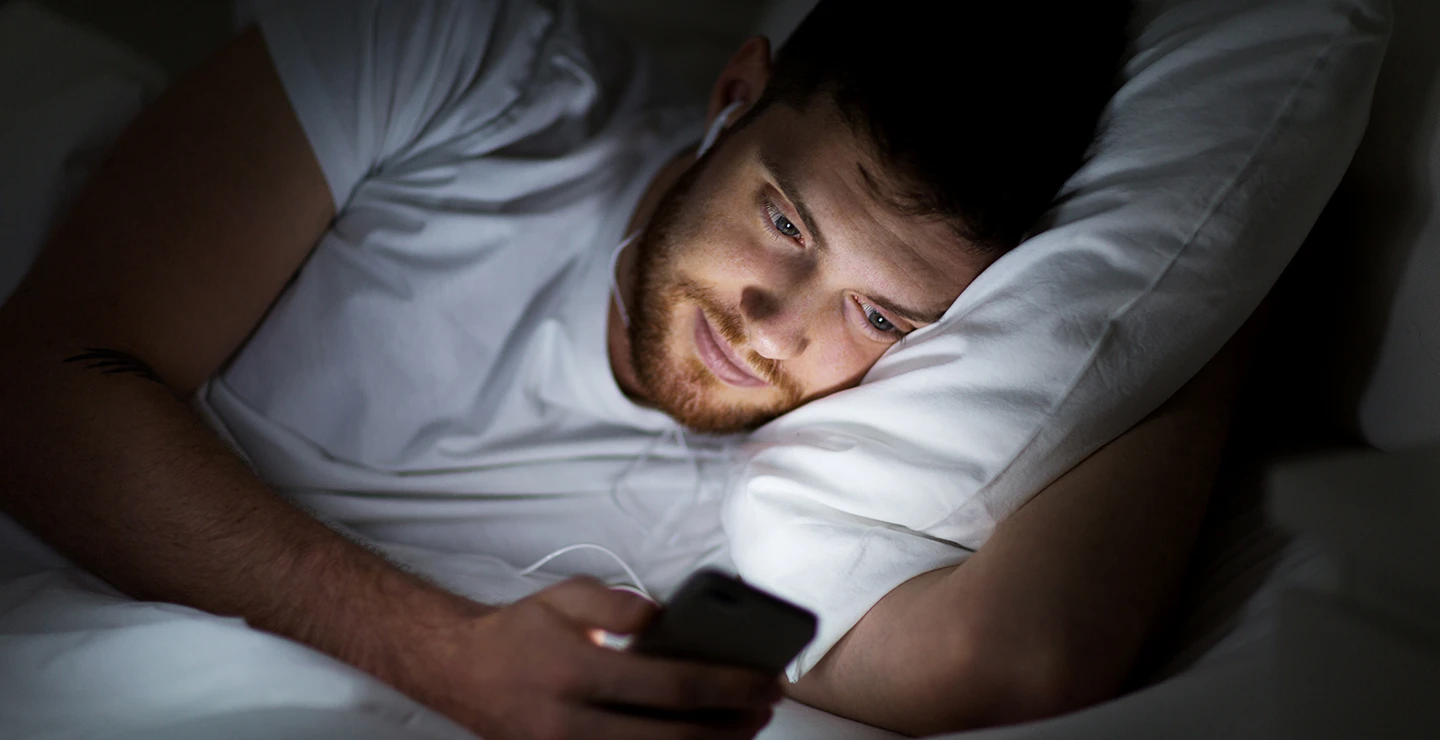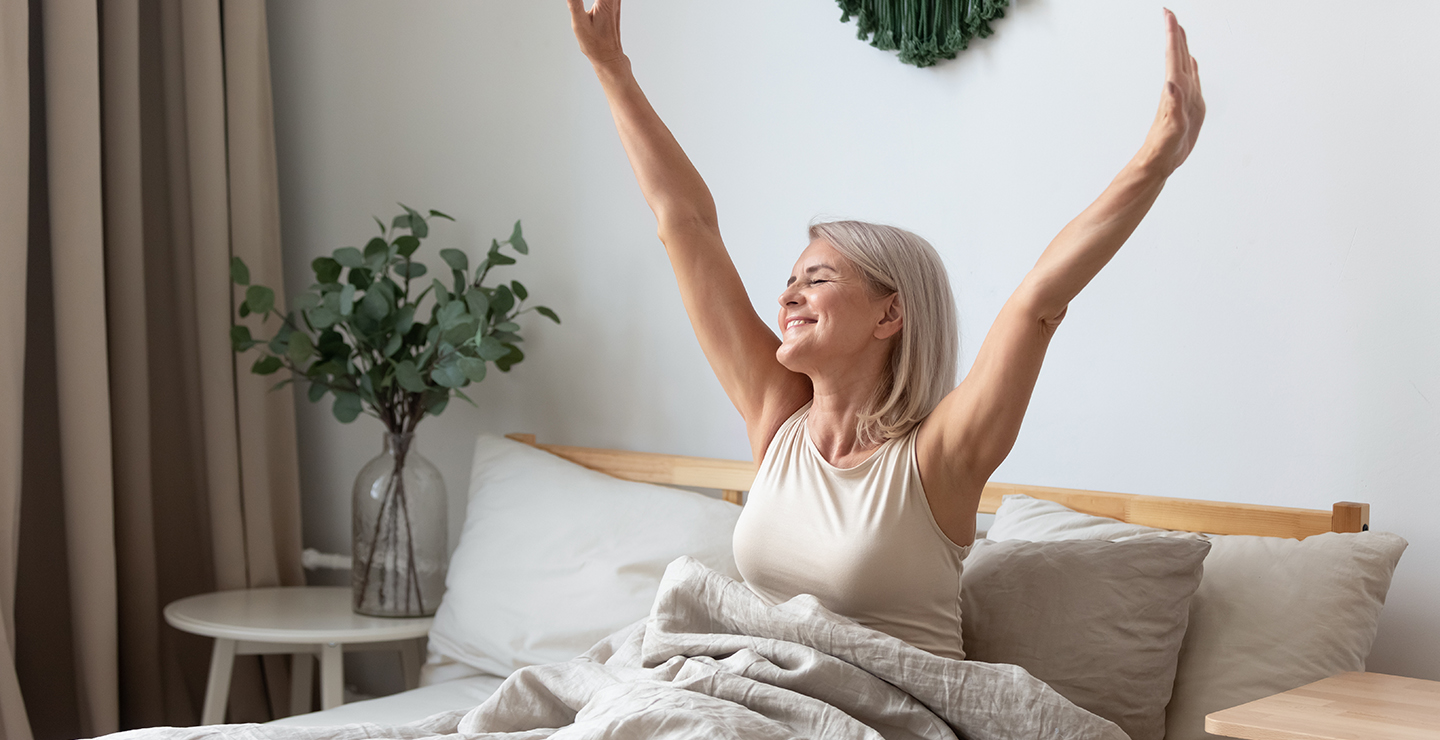Types of sleep and how to wake up feeling well-rested
There are several different states and stages of sleep (known as your “sleep architecture”), and some leave you feeling more rested than others
Struggles & Remedies


There are several different states and stages of sleep (known as your “sleep architecture”), and some leave you feeling more rested than others. Your “sleep architecture” follows a predictable pattern of REM (Rapid Eye Movement) and NREM (Non-Rapid Eye Movement) sleep. Each of these states alternates approximately every 90 minutes. Read on to learn more about the different stages of sleep and how you can wake up feeling refreshed and well rested.
TYPES OF SLEEP
Non-REM Sleep
Stage 1: Light sleep; easily awakened; muscles relax with occasional twitches; eye movements are slow.
Stage 2: Eye movements stop; slower brain waves with occasional bursts of rapid brain waves.
Stage 3: Occurs mostly in the first half of the night. Deep sleep; difficult to awaken; large, slow brain waves; heart and respiratory rates are slow; and muscles are relaxed.
The third stage of non-REM sleep is the deepest sleep phase—it’s the one that makes you feel well rested and energetic the next day. This stage of sleep is also when the body repairs and regrows tissues, builds bone and muscle and strengthens the immune system.
Stage 2: Eye movements stop; slower brain waves with occasional bursts of rapid brain waves.
Stage 3: Occurs mostly in the first half of the night. Deep sleep; difficult to awaken; large, slow brain waves; heart and respiratory rates are slow; and muscles are relaxed.
The third stage of non-REM sleep is the deepest sleep phase—it’s the one that makes you feel well rested and energetic the next day. This stage of sleep is also when the body repairs and regrows tissues, builds bone and muscle and strengthens the immune system.
REM Sleep
- Usually first occurs about 90 minutes after you fall asleep, and longer, deeper periods occur during the second half of the night; cycles along with the non-REM stages throughout the night.
- Eyes move rapidly behind closed eyelids.
- Breathing, heart rate and blood pressure are irregular.
- Dreaming occurs.
- Arm and leg muscles are temporarily paralyzed.
REM sleep is believed to be beneficial for learning, memory, and mood.
Benefits of REM Sleep
REM sleep accounts for approximately 20 to 25 percent of an adult’s sleep cycle, and over 50 percent of an infant’s. Most dreams occur during REM sleep, and according to the National Sleep Foundation, a lack of REM sleep may have adverse implications for physical and emotional health. For instance, REM sleep is believed to be beneficial for learning, memory, and mood.
Common Sleep Problems
Although our need for sleep does not change as we grow older, sleep can become more challenging in later adulthood. For women, the onset of menopause brings hormonal changes that can disrupt sleep. Many older adults find it difficult to stay asleep at night, or they may have a pattern of waking up very early in the morning. Certain adults may experience insomnia, a serious sleep disorder in which you have trouble falling and/or staying asleep. The condition can be short or long-term and may also fluctuate over time. Life experiences that can be stressful, such as job loss, death of a family member or normal life transitions and phases, can upset sleep and make restful nights elusive. Short periods of difficulty falling or staying asleep are somewhat common, however, and do not necessarily occur hand-in-hand with a major medical condition. If you think you’re experiencing insomnia, seek guidance from your healthcare professional.
How to Get Restful Sleep?
A healthy adult requires 7-9 hours of sleep per night, and sleeping less than this can reduce the number of REM sleep cycles.
If you suffer from occasional sleeplessness, an over-the-counter sleep medication such as ZzzQuil Liquid or ZzzQuil LiquiCaps can help. Both contain diphenhydramine, an antihistamine known to help treat occasional sleeplessness so you can fall asleep in as little as 20 minutes with a non-habit forming sleep-aid. If you’re looking for a drug free approach, the sleep experts at Vicks also designed ZzzQuil PURE Zzzs Melatonin as a sleep supplement that will help you fall asleep naturally* so you can take on your tomorrow. It’s formulated with an optimal level of melatonin for no next day grogginess,* shown to help support your natural sleep cycle, and a proprietary blend of botanicals, including chamomile and lavender. The morning after taking melatonin, you should wake up feeling rested, relaxed and invigorated. If you’ve gotten a full night’s sleep (6+ hours), but still feel groggy when you wake, you may be taking too large of a dose of melatonin. Reduce your dose next time to see if that helps.
In addition to these sleep suggestions, it’s beneficial to make sure your bedroom gives you the best opportunity for a good night’s sleep. This means turning off any screens (televisions, tablets, phones), turning the thermostat down, and turning on ambient noise, like a fan or gentle, soothing music to help you sleep restfully. Some people find that aromatherapy is also helpful. You want to make sure your room is as dark as possible because this helps your mind tell your body it’s time to sleep, and following the same bedtime routine every night can help improve sleep quality. To avoid having your alarm clock jolt you out of sleep before reaching the light sleep stage, consider going to bed earlier and replacing a noise alarm with a light alarm. Light alarms wake you more gently by increasing the amount of light until your dark room becomes bright, which also signals to your body to reduce melatonin and help push you into light sleep.
Other tips include:
If you suffer from occasional sleeplessness, an over-the-counter sleep medication such as ZzzQuil Liquid or ZzzQuil LiquiCaps can help. Both contain diphenhydramine, an antihistamine known to help treat occasional sleeplessness so you can fall asleep in as little as 20 minutes with a non-habit forming sleep-aid. If you’re looking for a drug free approach, the sleep experts at Vicks also designed ZzzQuil PURE Zzzs Melatonin as a sleep supplement that will help you fall asleep naturally* so you can take on your tomorrow. It’s formulated with an optimal level of melatonin for no next day grogginess,* shown to help support your natural sleep cycle, and a proprietary blend of botanicals, including chamomile and lavender. The morning after taking melatonin, you should wake up feeling rested, relaxed and invigorated. If you’ve gotten a full night’s sleep (6+ hours), but still feel groggy when you wake, you may be taking too large of a dose of melatonin. Reduce your dose next time to see if that helps.
In addition to these sleep suggestions, it’s beneficial to make sure your bedroom gives you the best opportunity for a good night’s sleep. This means turning off any screens (televisions, tablets, phones), turning the thermostat down, and turning on ambient noise, like a fan or gentle, soothing music to help you sleep restfully. Some people find that aromatherapy is also helpful. You want to make sure your room is as dark as possible because this helps your mind tell your body it’s time to sleep, and following the same bedtime routine every night can help improve sleep quality. To avoid having your alarm clock jolt you out of sleep before reaching the light sleep stage, consider going to bed earlier and replacing a noise alarm with a light alarm. Light alarms wake you more gently by increasing the amount of light until your dark room becomes bright, which also signals to your body to reduce melatonin and help push you into light sleep.
Other tips include:
- Exercise regularly – exercising regularly has a slew of health benefits, from lowering your risk of heart disease to increasing your body’s ability to fight stress. As few as 10 minutes of exercise can promote a good night’s sleep.
- Get some natural sunlight – Natural sunlight lets your body know that it’s time to be awake. If you find yourself indoors all day or not getting any natural sunlight, like leaving home before the sun is out and going back after it has set, you could be causing your body’s circadian rhythm to get confused. It’s important to get at least some exposure to natural light each day.
- Practice mindfulness – If it’s a restless mind that’s keeping you awake, practice stress-relieving mindfulness exercises. Meditation, yoga and journaling are all excellent ways to help release stress, so that your mind doesn’t race while you’re trying to fall asleep.
Hope these help, and sweet dreams!




